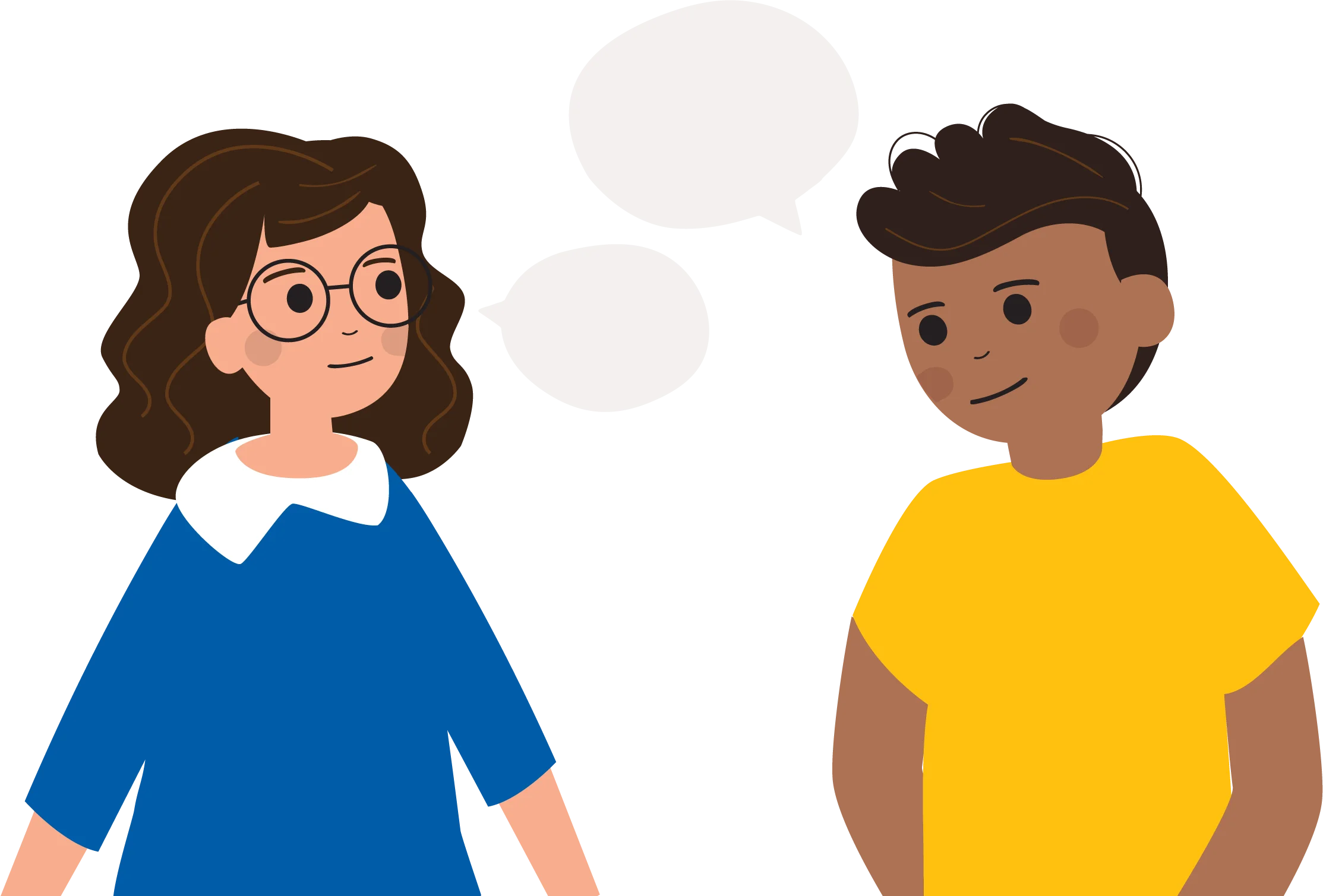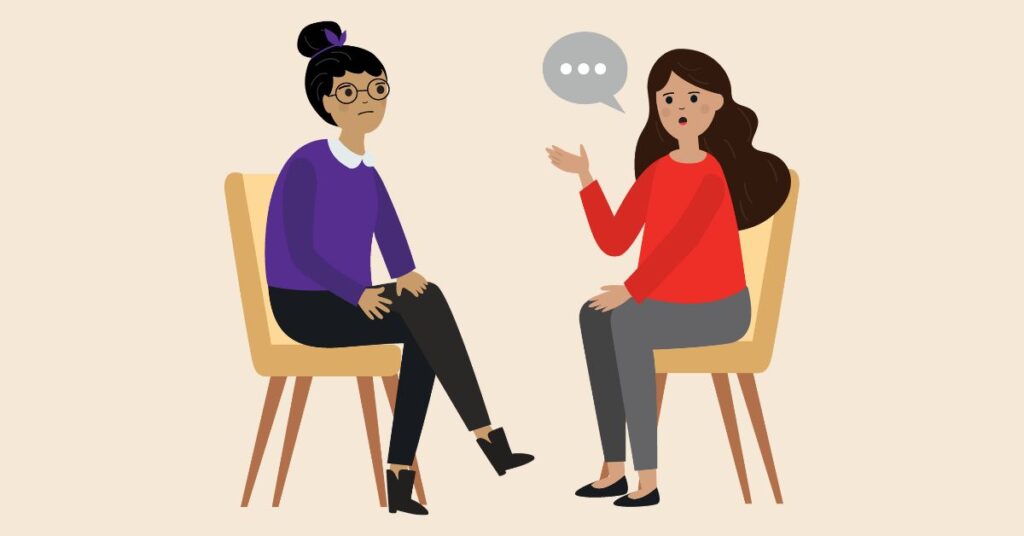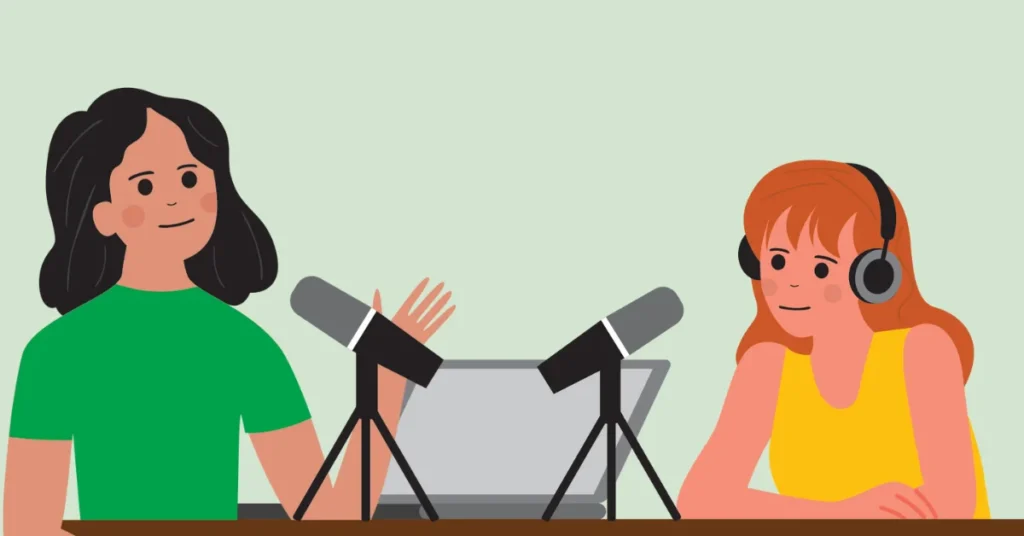A conversation that changed a life
When Kellie’s housemate came home from work one day, she noticed their behaviour seemed off. As a trained Mental Health First Aider, Kellie could recognise that something wasn’t right.
That night, when she noticed her housemate’s bedroom light was still on at 3 am, she knew she had to make a choice. ‘I had to decide if I was willing to make myself a little bit uncomfortable for a minute to make them feel seen and heard.’ She tapped on the door and asked if they were okay.
At first, her housemate brushed off her concerns and insisted everything was fine. Kellie gently persisted, showing genuine care for their wellbeing, before they finally broke down and admitted, ‘I’m really not okay. I’m going through a lot’.
Kellie describes the conversation that followed as ‘gut wrenching’ and was quickly able to identify the situation as a mental health crisis. When she completed her Mental Health First Aid training months before, she had been given a crisis first aid action plan and learnt that the most important thing to do in situations like this is be direct and ask the difficult questions.
‘Are you thinking of ending your life?’ she asked, to which her housemate admitted that they had been contemplating hurting themselves.
Understanding the care in which she had to navigate the conversation, Kellie calmly responded: ‘I can’t imagine how you’re feeling. But I do know that hurting yourself is not going to make you feel as good as you think it will’. Continuing with the crisis first aid action plan, Kellie asked if they had a plan to hurt themselves and they confirmed they did.
Kellie recalled from the training that strong demands or judgements in moments like these could be harmful, so she continued to focus on showing genuine care while guiding her housemate to safety.
That night, the two housemates called a mental health triage line together, which allowed a trained professional to intervene and provide crucial guidance and support. ‘They walked us through step by step what would happen and how we would deal with this,’ Kellie remembers.
The next day her housemate had an appointment with a therapist. ‘They came home from that therapy session and looked like the world had been taken off their shoulders. Not because their problems had gone away, but because they didn’t have to hold them all in anymore.
‘They cried with me again, but they were different kind of tears – they were tears of relief.’
Equipped to make a difference
For Kellie, being a trained Mental Health First Aider helped her to navigate the conversation carefully and as safely as possible. As soon as she identified the situation as a mental health crisis, she knew that professional intervention was needed.
‘Knowing that from the beginning, and having those skills, enabled me to steer the conversation that way, and for my housemate to understand that I was coming from a place of care and understanding.’
Kellie says that without those skills or knowledge, she probably would have shrugged the situation off as none of her business or shut down during the conversation.
‘Now I feel equipped to recognise and address mental health issues not only in my household, but in my family as well. I even used it recently with a colleague who was dealing with some pretty severe issues.
‘Without these skills, people will fall through the cracks and that’s a terrible thing.’
An impact to last a lifetime
Kellie and her housemate now have a mental health care plan on the fridge that everyone can see and no one is ashamed of.
The two of them make time every week to talk about mental health and check in on each other. Now, when her housemate isn’t okay, they feel safe speaking about it and know that Kellie will be there to help.
Kellie feels grateful that she had the mental health first aid skills and knowledge to support her housemate during that time, and to give her the confidence to knock on their bedroom door that night.
‘I’m really grateful that I still get to have this person in my life, around my family, around my little girl, showing us all that even though it’s hard, help is available. Being a Mental Health First Aider helped me change their life for the better’

Have a Story to share?
If you’re a Mental Health First Aider with a story to share, we’d love to hear from you.
Simply fill out the form below to share your details and our team will get in touch with you to discuss next steps.
Read Other Stories
Explore our other stories below or go back to the MHFA Stories page.
Toluwanimi Jewel’s story
A few years ago, Toluwanimi Jewel, a doctor with years of clinical experience, noticed that one of her managers at work had been acting out of character for a few weeks. ‘I noticed that this particular person was withdrawn. They had become absent minded, staring...
Cecilia’s story
Cecilia’s mental health story started when she was young, although like many others she didn’t realise it at the time. The turning point in Cecilia’s story came when she was in the middle of a Mental Health First Aid course.
Leesa’s Story
Leesa, a member of the Mental Health First Aider Network since 2021, combines her hospitality experience with a passion for mental health advocacy, hosting a podcast to share and explore mental health stories.
Learn about our training
Explore our range of course options to find the Mental Health First Aid training that’s right for you.





